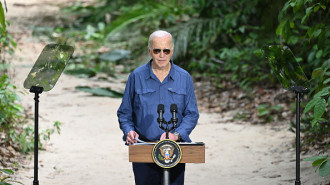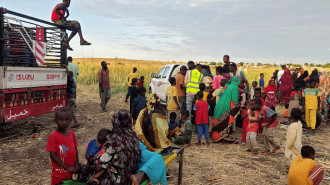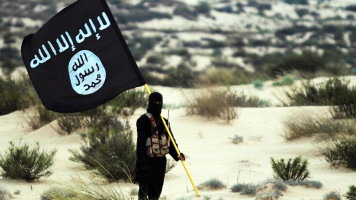Iraq presidential vote in question after boycotts, court ruling
Doubts hung Sunday over a scheduled parliamentary vote for Iraq's president after the Supreme Court temporarily suspended former foreign minister Hoshyar Zebari, a frontrunner for the post, and leading parliamentary factions announced a boycott.
The decisions not to attend Monday's session again highlight political divisions in a war-scarred country hobbled by corruption and poverty.
The largest parliamentary bloc, holding 73 seats and led by powerful Shia cleric Moqtada Sadr, was the first to boycott, saying on Saturday it would not attend the session which is scheduled for midday (0900 GMT).
That was followed on Sunday with a boycott by the Sovereignty Coalition, made up of 51 MPs and led by parliamentary speaker and Sadr ally Mohammed al-Halbussi.
The third party in their informal alliance, the Kurdistan Democratic Party (KDP), from which Zebari hails, said it, too, would not be there to fill its 31 seats. This is in order to "continue consultations and dialogue between political blocs", it said.
Their decision came after the Supreme Court cited years-old corruption charges against Zebari in suspending him.
The successive boycotts could result in Monday's session being cancelled or postponed due to lack of a quorum, which is set at two thirds of the 329-seat chamber.
A scheduled presidential vote follows October legislative elections marred by record-low turnout, post-election threats and violence, and a delay until final results were confirmed in late December.
Intense negotiations among political groups since then have failed to form a majority parliamentary coalition to name a prime minister.
'Unconstitutional'
Zebari was one of two main contenders for the largely ceremonial post of president, which has a four-year mandate and by convention is held by a member of Iraq's Kurdish minority.
The other favoured candidate, out of roughly 25 in total, is the incumbent Barham Saleh. He is the candidate of KDP's rival in Iraqi Kurdistan, the Patriotic Union of Kurdistan (PUK).
In suspending Zebari, the court said it had received a complaint from lawmakers that his candidacy was "unconstitutional" because of the graft claims.
It said the suspension was "temporary" while the court considers the case.
Iraq's highest judicial body said the complainants consider that Zebari does not fulfil constitutional requirements that the head of state must have "a good reputation and integrity".
The court cited his 2016 dismissal from the post of finance minister by parliament "over charges linked to financial and administrative corruption".
Public funds worth $1.8 million were allegedly diverted to pay for airline tickets for his personal security detail.
Zebari, 68, has always denied all corruption accusations.
"I have not been convicted in any court," Zebari said in a television interview on Friday night as the charges resurfaced alongside forecasts he would unseat Saleh.
The complaint also cited at least two other judicial cases linked to him, including when he was the country's long-time foreign minister after the fall of dictator Saddam Hussein in the 2003 US-led invasion.
'Not a consensus' candidate
"Our withdrawal is a message to the Kurds, in particular to the KDP, for them to agree on a single candidate," a Sadrist MP told AFP, speaking on condition of anonymity due to the sensitivity of the issue.
The MP, whose bloc's leader Sadr controls the complex negotiations to select a new prime minister, said Zebari was "not a consensus" candidate.
But while Sadr's bloc claims it has enough seats for a "national majority government", the powerful rival Shiite Coordination Framework, appealed to the Supreme Court to have their bloc recognised as the majority.
The court rejected their demand, saying it could not decide now, as parliamentary blocs could change.
"No one knows how to be in the opposition. Everyone knows how to share the pie," Iraqi political analyst Hamzeh Hadad said.







 Follow the Middle East's top stories in English at The New Arab on Google News
Follow the Middle East's top stories in English at The New Arab on Google News


